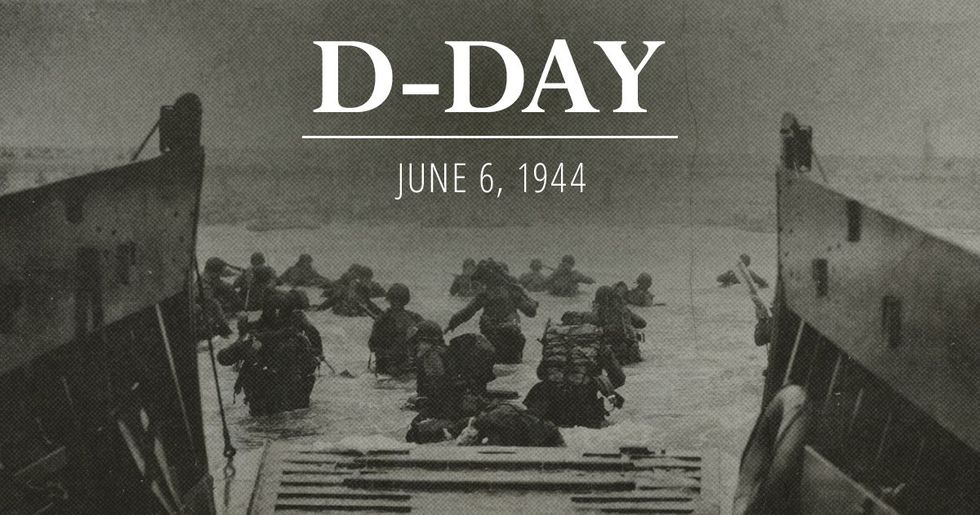
Image source: Twitter

To military historians, millions of Americans, Europeans and especially the survivors and families of those who fought in World War II, June 6, 1944, is known solely as "D-Day" — a day widely recognized as a turning point in World War II.
Injured and exhausted assault troops are helped ashore at Sword Beach on D-Day, June 6, 1944. #DDay pic.twitter.com/RzMjU1DA57
— World War II History (@WW2Facts) June 6, 2016
On the morning of the historic day, a coordinated assault was launched involving more than 160,000 Allied fighters storming the beaches of Normandy, France.
Success on D-Day was critical to an Allied win over Nazi Germany. But, what does it mean? What does the "D" in D-Day stand for?
Could the "D" stand for decision, doomsday or even death?
While there is not complete agreement on the answer to the question, a couple of generally accepted explanations lead all possible answers.
The World War II Museum in New Orleans offers clarity on the topic citing author Stephen Ambrose's "D-Day, June 6, 1944: The Climactic Battle of World War II":
Time magazine reported on June 12 [1944] that “as far as the U.S. Army can determine, the first use of D for Day, H for Hour was in Field Order No. 8, of the First Army, A.E.F., issued on Sept. 20, 1918, which read, ‘The First Army will attack at H-Hour on D-Day with the object of forcing the evacuation of the St. Mihiel salient.’”
According to Time, the "D" in D-Day merely means "day."
Could it be that simple? Perhaps. Perhaps not.
Another book, "War Slang" from Paul Dickson, offers the following accounts for consideration:
Many explanations have been given for the meaning of D-Day, June 6, 1944, the day the Allies invaded Normandy from England during World War II. The Army has said that it is “simply an alliteration, as in H-Hour.” Others say the first D in the word also stands for “day,” the term a code designation. The French maintain the D means “disembarkation,” still others say “debarkation,” and the more poetic insist D-Day is short for “day of decision.” When someone wrote to General Eisenhower in 1964 asking for an explanation, his executive assistant Brigadier General Robert Schultz answered: “General Eisenhower asked me to respond to your letter. Be advised that any amphibious operation has a ‘departed date’; therefore the shortened term ‘D-Day’ is used.”
Allied landing craft with protective barrage balloons head toward the French coast. #History #DDay (via @AP) pic.twitter.com/AGh1WD4SYb
— World War II History (@WW2Facts) June 6, 2016
The short answer here, the "D" in D-Day could mean day, departure, disembarkation, debarkation or day of decision.
The only real agreement on D-Day is the fact the invasion forever changed the course of WWII.
Need to more about the events of D-Day? You can follow a timeline of the invasion on Twitter.
—
Follow the author of this story on Twitter and Facebook: